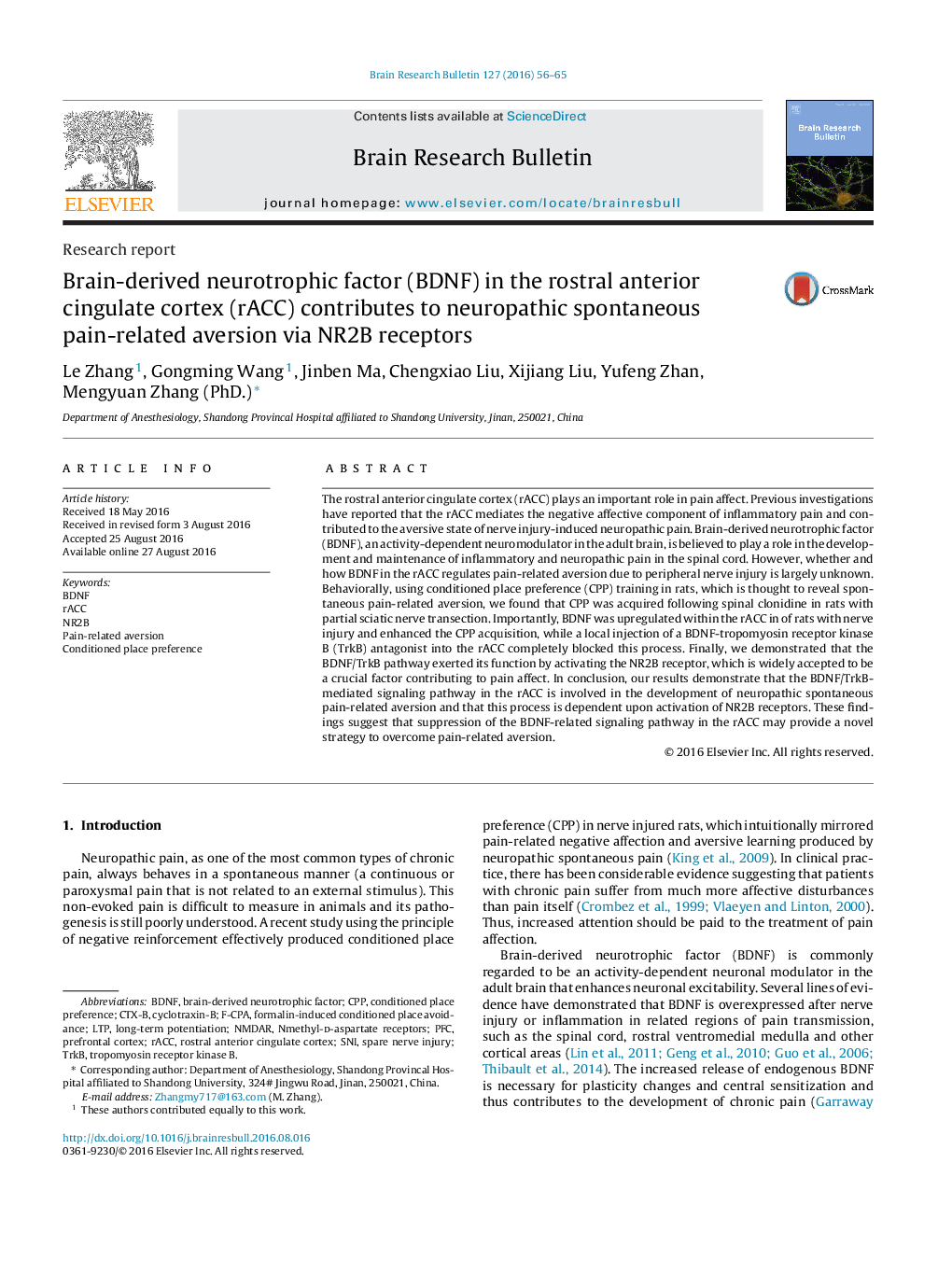| Article ID | Journal | Published Year | Pages | File Type |
|---|---|---|---|---|
| 4318575 | Brain Research Bulletin | 2016 | 10 Pages |
•BDNF signaling in rACC involves in neuropathic spontaneous pain-related aversion.•NR2B is an important downstream effector of the BDNF/TrkB signaling pathway.•A new strategy targeting BDNF in the rACC may be useful for treating pain affect.
The rostral anterior cingulate cortex (rACC) plays an important role in pain affect. Previous investigations have reported that the rACC mediates the negative affective component of inflammatory pain and contributed to the aversive state of nerve injury-induced neuropathic pain. Brain-derived neurotrophic factor (BDNF), an activity-dependent neuromodulator in the adult brain, is believed to play a role in the development and maintenance of inflammatory and neuropathic pain in the spinal cord. However, whether and how BDNF in the rACC regulates pain-related aversion due to peripheral nerve injury is largely unknown. Behaviorally, using conditioned place preference (CPP) training in rats, which is thought to reveal spontaneous pain-related aversion, we found that CPP was acquired following spinal clonidine in rats with partial sciatic nerve transection. Importantly, BDNF was upregulated within the rACC in of rats with nerve injury and enhanced the CPP acquisition, while a local injection of a BDNF-tropomyosin receptor kinase B (TrkB) antagonist into the rACC completely blocked this process. Finally, we demonstrated that the BDNF/TrkB pathway exerted its function by activating the NR2B receptor, which is widely accepted to be a crucial factor contributing to pain affect. In conclusion, our results demonstrate that the BDNF/TrkB-mediated signaling pathway in the rACC is involved in the development of neuropathic spontaneous pain-related aversion and that this process is dependent upon activation of NR2B receptors. These findings suggest that suppression of the BDNF-related signaling pathway in the rACC may provide a novel strategy to overcome pain-related aversion.
